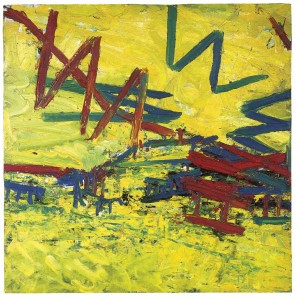Association for Psychosocial Studies Biennial Conference
Bournemouth University, 5th-7th April 2018
‘Psychosocial Reflections on a Half Century of Cultural Revolution’
http://aps2018.bournemouth.ac.uk
A half century after the hippie counterculture of 1967 (‘the summer of love’) and the political turbulence of 1968 (‘May 68’), one aim of this conference is to stage a psychosocial examination of the ways in which today’s world is shaped by the forces symbolised by those two moments. It will explore the continuing influence of the deep social, cultural and political changes in the West, which crystallised in the events of these two years. The cultural forces and the political movements of that time aimed to change the world, and did so, though not in the ways that many of their participants expected. Their complex, multivalent legacy of ‘liberation’ is still developing and profoundly shapes the globalising world today, in the contests between what is called neo-liberalism, resurgent fundamentalisms, environmentalism, individualism, nationalisms, and the proliferation of identity politics.
A counter-cultural and identity-based ethos now dominates much of consumer culture, and is reflected in the recent development of some populist and protest politics. A libertarian critique of politics, once at the far margins, now informs popular attitudes towards many aspects of democratic governance; revolutionary critiques have become mainstream clichés. Hedonic themes suffuse everyday life, while self-reflection and emotional literacy have also become prominent values, linked to more positive orientations towards human diversity and the international community.
The programme is now available on the conference website:
http://aps2018.bournemouth.ac.uk/wp-content/uploads/2018/02/Provisional-Programme.pdf
There are five keynotes and eighty papers, with presenters from all continents, as well as a number of experiential workshops. As well as examining the main theme of societal change, there is an open stream of papers on a wide range of topics. Methods of psychosocial inquiry are applicable to most topics. As an academic community, the psychosocial is a broad church defined only by a commitment to exploring and linking the internal and external worlds – the deeply personal and the equally deeply societal as sources of experience and action.
BU colleagues can attend the whole conference at the hugely discounted rate of £40, or £25 per day.














 Expand Your Impact: Collaboration and Networking Workshops for Researchers
Expand Your Impact: Collaboration and Networking Workshops for Researchers Visiting Prof. Sujan Marahatta presenting at BU
Visiting Prof. Sujan Marahatta presenting at BU 3C Event: Research Culture, Community & Can you Guess Who? Thursday 26 March 1-2pm
3C Event: Research Culture, Community & Can you Guess Who? Thursday 26 March 1-2pm UKCGE Recognised Research Supervision Programme: Deadline Approaching
UKCGE Recognised Research Supervision Programme: Deadline Approaching ECR Funding Open Call: Research Culture & Community Grant – Apply now
ECR Funding Open Call: Research Culture & Community Grant – Apply now ECR Funding Open Call: Research Culture & Community Grant – Application Deadline Friday 12 December
ECR Funding Open Call: Research Culture & Community Grant – Application Deadline Friday 12 December MSCA Postdoctoral Fellowships 2025 Call
MSCA Postdoctoral Fellowships 2025 Call ERC Advanced Grant 2025 Webinar
ERC Advanced Grant 2025 Webinar Update on UKRO services
Update on UKRO services European research project exploring use of ‘virtual twins’ to better manage metabolic associated fatty liver disease
European research project exploring use of ‘virtual twins’ to better manage metabolic associated fatty liver disease